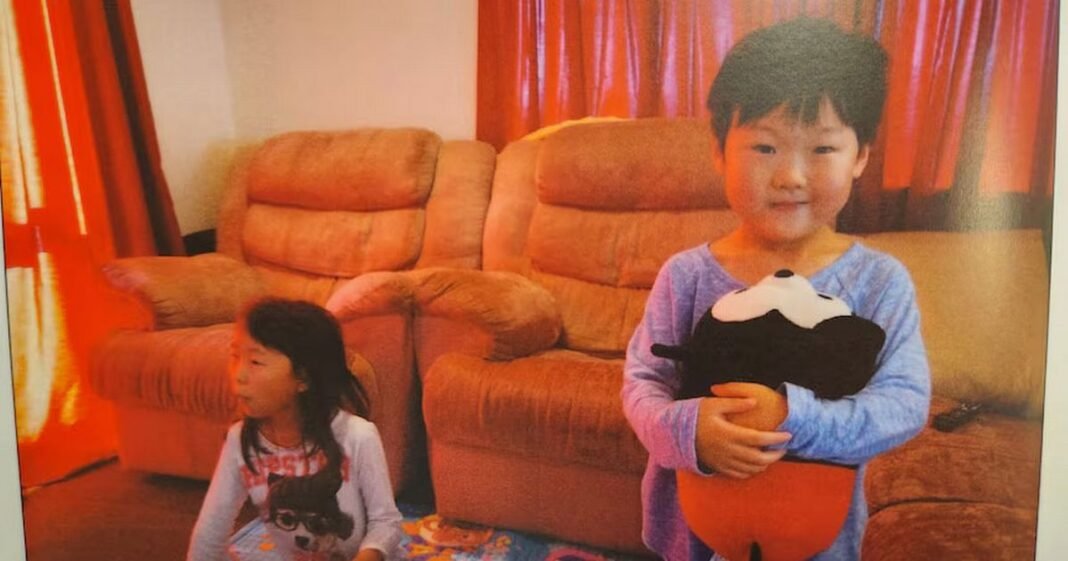A mother has been convicted of killing her two children and storing their bodies in suitcases for four years before they were found. The verdict was delivered by the jury at the High Court in Auckland, New Zealand, rejecting the defense of insanity presented by Hakyung Lee’s lawyers. Lee, who had fled to South Korea after the murders and was later extradited for trial, was charged with the murder of Minu Jo, aged six, and Yuna Jo, aged eight, in June 2018. The children’s remains were discovered in luggage at an abandoned storage facility in Auckland in August 2022.
Originally named Ji Eun Lee and a New Zealand citizen, the defendant changed her name and traveled to South Korea in 2018 following the children’s deaths. She was brought back to New Zealand from South Korea in November 2022. Despite denying the charges, her legal team argued that Lee was mentally unstable at the time of the killings.
The defense acknowledged that Lee had administered an antidepressant to the children, resulting in their deaths, but claimed that her mental state had deteriorated significantly, exacerbated by the loss of her husband. Prosecutors countered this by stating that Lee’s depression did not reach a level that would support an insanity plea under New Zealand law, which requires the defendant to prove their inability to comprehend their actions or their wrongfulness.
Prosecutors alleged that Lee’s actions were premeditated and driven by selfish motives, aiming to start a new life without her children. The children’s bodies were uncovered when Lee failed to maintain payments for the storage unit, leading to an online auction of its contents where the bodies were discovered.
Following the jury’s decision, Lee was remanded in custody until her sentencing on November 26. In New Zealand, murder carries a mandatory life sentence, with a minimum term of 10 years before eligibility for parole. During the trial, Lee was permitted to observe proceedings from a separate room due to the distressing nature of the case. Reports from New Zealand news sources described her standing in the courtroom with her head bowed and hair obscuring her face.

